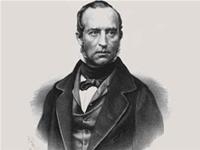 The battle for control over the Internet has truly erupted between the United States and other countries around the world. The U.S. seeks to maintain its dominance over the Internet, while other nations demand greater control.
The battle for control over the Internet has truly erupted between the United States and other countries around the world. The U.S. seeks to maintain its dominance over the Internet, while other nations demand greater control.
The European Council warns that if no agreement is reached at the conference in Tunisia next month, the Internet could very well be fragmented.
The issue arises from the U.S. government’s oversight of the Domain Name System (DNS).
The DNS can be thought of as the address book of the Internet, where each IP address is assigned a memorable text-based address. For example, Google has the IP address 216.239.37.99, which corresponds to the DNS address www.google.com.
Not just a collection of Internet addresses, the DNS organizes addresses by regions, known as domains, allowing for quick and efficient communication across the Internet.
The DNS system is currently managed by the non-profit organization ICANN (The Internet Corporation for Assigned Names and Numbers). ICANN decides who operates at the top-level domains (TLDs) like .com, .org, or .vn and is responsible for allocating Internet space. The organization was established in California under a license from the U.S. Department of Commerce, and thus must adhere to California state laws.
All of ICANN’s decisions are advised by the Governmental Advisory Committee (GAC). In reality, the GAC exerts more pressure on ICANN than the U.S. Department of Commerce does. The GAC reviews all domain name creation requests, while the Department of Commerce has never intervened in the company’s decisions.
Many governments believe they need a forum where all world leaders can freely express their views about the Internet, but since ICANN is under U.S. control, they feel that the Internet is dominated by a single nation.
A meeting was held in Geneva last month to gather the opinions of politicians on this issue. Europe’s plan to open Internet governance to developing countries faced strong opposition from the U.S.
Viviane Reding, European Commissioner for Information, stated, “If the parties do not reach a multilateral agreement, countries like Russia, China, Brazil, and some Arab nations could very well build their own Internets. In such a scenario, the universal nature that makes the Internet magical would disappear.”
The U.S. argues that many undemocratic governments cannot create an open Internet.
Michaek Gallagher, Internet advisor to President Bush and head of the U.S. communications executive board, believes they hold the heart of the Internet, the very essence that makes it function. “Those aiming for control think that DNS is everything. But life is based on territorial boundaries and the policies they establish there.”
The U.S. government created the Internet in the 1960s and intends to maintain its oversight of ICANN, having abandoned its commitment during the Clinton administration.
David Gross, head of the U.S. delegation at the Geneva conference, said, “An untested model of Internet governance could disrupt over 250,000 networks using the TCP/IP protocol, with more than 1 billion participants across 27 billion transactions each day.”
“The Internet has been and continues to be seen as a reliable and stable network of networks. It has developed at an unprecedented pace in human history… What we are looking forward to is the technological revolution of the Internet. We do not believe that creating or using additional multilateral institutions to control the Internet will accelerate technological advancements.”
Domain Names – The Focus of Controversy
 According to Emily Taylor, Director of Policy & Legal Affairs at Nominet, the organization managing domain names ending in .co or .org, all the controversies at the Geneva conference revolved around top-level domains.
According to Emily Taylor, Director of Policy & Legal Affairs at Nominet, the organization managing domain names ending in .co or .org, all the controversies at the Geneva conference revolved around top-level domains.
Although the DNS is a distributed system, it requires a starting point, a list of locations from which Internet addresses begin. This list is called the root zone file, consisting of 248 top-level domains by country codes such as .vn, .kr, .uk, and 14 top-level domains by scope such as .com, .net, .org. The root zone file determines who operates in which domain and where the search for them begins. There are only 13 servers in the world that hold this list, 10 of which are located in the U.S.
ICANN’s CEO, Paul Twomey, shares many concerns with the U.S. government. He stated, “We always want to be progressive and dynamic. We are responsible for the stability of the Internet and believe that is the best way to develop existing systems. Our corporate structure today is a product of history, not of any specific design.”
Management – A Secondary Issue
Two weeks ago, Europe proposed a “collaborative model” to negotiate with ICANN and a forum for governments to debate Internet governance.
Europe’s plan has received support from China, Arab nations, Iran, Pakistan, and many others. In response, some European politicians expressed skepticism, stating, “The debate over Internet governance is merely a minor issue, while Europe allows other nations to pull away from the U.S., placing Europe in a precarious position.” Other politicians clarified that they “completely oppose content control of the Internet. Europe’s role is different from that of China or Brazil,” and they will not compromise with any proposals from those countries.
While they dislike the way the U.S. dominates the Internet, Argentina and Canada expressed concern about granting Internet governance to all countries. Just three days before the conference in Tunisia, officials’ opinions will be gathered for thorough and candid discussions on Internet governance.
It seems the era of the “sun never sets” on the Internet is nearing its end. Although decisions from the Tunisia conference may lack legal significance, the relationship between ICANN and the U.S. government will conclude by the end of September next year, at which point the organization’s operations will be entirely independent of the government.
Mr. Gallagher stated, “We will not bureaucratize, politicize, or hinder the development of the DNS. We did not agree to that in November, and we will not do so in September next year.”





















































